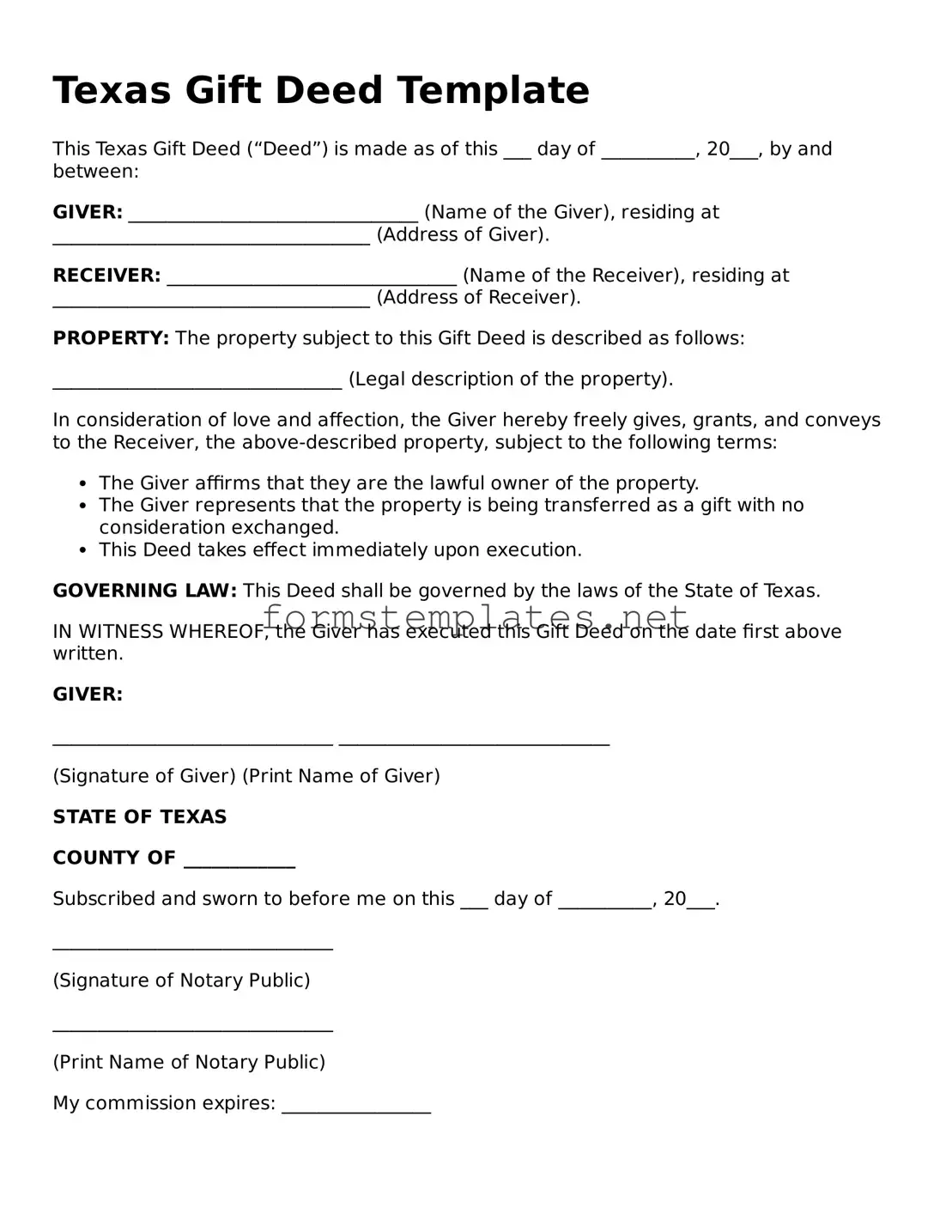Attorney-Approved Texas Gift Deed Template
A Texas Gift Deed form is a legal document used to transfer ownership of real property from one person to another without any exchange of money. This form allows the giver, or donor, to convey their property as a gift to the recipient, or donee. Understanding the requirements and implications of this form is essential for both parties involved in the transaction.
Open Editor Now

Attorney-Approved Texas Gift Deed Template
Open Editor Now

Open Editor Now
or
⇓ PDF Form
Your form still needs attention
Finalize Gift Deed online — simple edits, saving, and download.